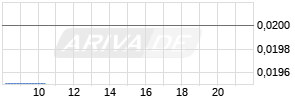Data on the effects of gemcitabine on epithelial tissue released
MANCHESTER, UNITED KINGDOM--(Marketwire - June 02, 2009) - Epistem
plc (LSE: EHP), the UK biotechnology and contract research company,
will present preclinical results from its recently completed plucked
hair biomarker study at the Institute of Cancer Research Centenary
Conference, in Queen Elizabeth II Conference Centre, London, UK on
8th to 10th June 2009. This study was completed successfully on
gemcitabine, commonly known as Gemzar®. This therapeutic agent is one
of a class of antimetabolite chemotherapy drugs designed to target
cells that are dividing rapidly, including cancer cells, and is used
to treat lung, pancreatic, ovarian, bladder and metastatic breast
cancer.
The data will be presented by Dr. Ged Brady in poster p196 that will
be on display on 9-10th June 2009 and demonstrates that specific
drug-induced changes are caused by this therapeutic agent. These can
be monitored through the changes observed in gene expression in the
epithelial tissue that is associated with a plucked hair. The Company
has already presented data on the ability of its plucked hair
biomarker technology to monitor the effects of another widely used
chemotherapeutic agent, erlotinib, which belongs to a completely
different class of drug called epidermal growth factor receptor
inhibitors.
This positive new data confirms the utility of the plucked hair
biomarker technology and its ability to monitor drug induced changes
in epithelial tissue caused by different chemotherapeutic agents. The
plucked hair biomarker platform provides a simple, minimally invasive
means of monitoring the specific response of epithelial tissue to
established oncology agents. This supports strongly the case for
plucked hair as a valuable surrogate tissue in identifying, early on,
the best lead candidates to take into clinical development for a
variety of therapeutic agents in oncology. Furthermore, the plucked
hair biomarker platform is now showing the potential to predict
quantitatively the differential effects of new compounds in
development versus both gemcitabine and erlotinib, as well as for
other drugs in development which affect the growth of epithelial
tissue in the clinical setting.
"Momentum continues to build as our plucked hair biomarker technology
is used increasingly to identify pharmacodynamic markers in Phase I
clinical studies. These results provide a strong basis to confirm the
preclinical relevance of hair as surrogate tissue to measure target
engagement and biological response to drug, that can then readily
translate into early clinical studies," said Lydia Meyer-Turkson,
Director of the Biomarker Division at Epistem. "We are pleased that
the data demonstrates the relevance of plucked hair as a pharmaco
dynamic biomarker for a cytotoxic known to affect the cell cycle and
apoptosis" she added.
The abstract will be available on request following presentation.
Notes to Editors:
About Epistem
Epistem is a biotechnology company commercialising its expertise in
epithelial stem cells in the areas of oncology, gastrointestinal
diseases and dermatological applications. Epistem develops innovative
therapeutics and biomarkers and provides contract research services
to drug development companies. The Group's expertise is focused on
the regulation of adult stem cells located in epithelial tissue,
which includes the gastrointestinal tract, skin, hair follicles,
breast and prostate. Epistem does not conduct research in the areas
of embryonic stem cells or stem cell transplantation.
Epistem operates three distinct business divisions, Contract Research
Services, Novel Therapies and Biomarkers.
Biomarkers
The Biomarker division provides services to drug development
companies using its plucked hair biomarker technology. The Company's
knowledge of the behaviour of epithelial cells and drug-induced gene
expression change is used to measure drug effects during treatment.
Changes in gene expression can be detected within hours and at low
levels of chemotherapy or radiation. The highly sensitive Biomarker
technology is based on using mRNA extracted from the bulb of cells at
the base of a single hair follicle as a minimally invasive process to
measure gene expression changes in epithelial tissue.
Contacts:
Epistem plc
Dr. Danielle Hargreaves
Public Relations
+44 (0)161 606 7258 or +44 (0) 7920 815603
info@epistem.co.uk
www.epistem.co.uk
De Facto Communications
Mike Wort / Anna Dunphy
Financial PR/IR
+44 (0) 207 861 3838
This announcement was originally distributed by Hugin. The issuer is
solely responsible for the content of this announcement.
Top-News
Epistem Presents Further Data Supporting Its Plucked Hair BiomarkerTechnology at the Institute of Cancer Research Centenary Conference
Dienstag, 02.06.2009 08:10 von Hugin - Aufrufe: 247
Werbung
Mehr Nachrichten kostenlos abonnieren
E-Mail-Adresse
Bitte überprüfe deine die E-Mail-Adresse.
Benachrichtigungen von ARIVA.DE
(Mit der Bestellung akzeptierst du die Datenschutzhinweise)
(Mit der Bestellung akzeptierst du die Datenschutzhinweise)
-1

Vielen Dank, dass du dich für unseren Newsletter angemeldet hast. Du erhältst in Kürze eine E-Mail mit einem Aktivierungslink.
Hinweis: ARIVA.DE veröffentlicht in dieser Rubrik Analysen, Kolumnen und Nachrichten aus verschiedenen Quellen. Die ARIVA.DE AG ist nicht verantwortlich für Inhalte, die erkennbar von Dritten in den „News“-Bereich dieser Webseite eingestellt worden sind, und macht sich diese nicht zu Eigen. Diese Inhalte sind insbesondere durch eine entsprechende „von“-Kennzeichnung unterhalb der Artikelüberschrift und/oder durch den Link „Um den vollständigen Artikel zu lesen, klicken Sie bitte hier.“ erkennbar; verantwortlich für diese Inhalte ist allein der genannte Dritte.




